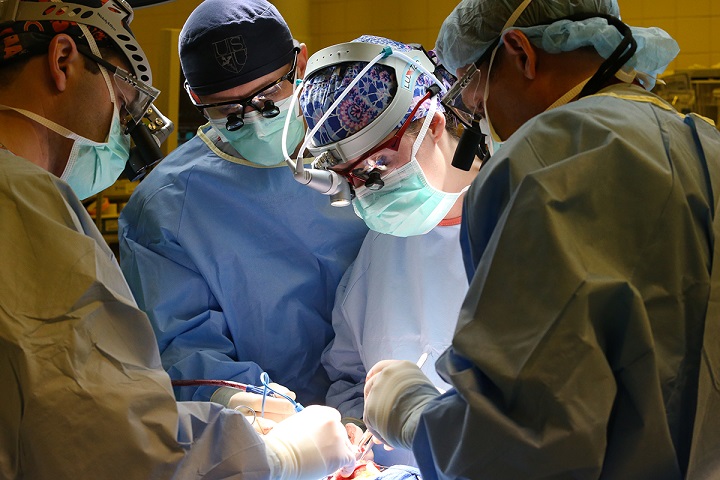STEM
Women in Science
History of Science
Medicine
Edward Hessler
Die Luft der Freiheit weht--the wind of freedom blows. Unoffical Motto, Stanford University
This is a longer than normal post. It is divided into sections which I hope are useful.
Introductory Comments
The mileposts in Dr. Frances Conley's neurosurgical career at the Stanford University School of Medicine are like bright stars shining in a crisp winter night sky.
First woman (1966) to be admitted to a surgical internship, the first female (1975) faculty member in any surgery division, the fifth woman (1977) to become a board certified neurosurgeon in the United States, the first woman (1982) to receive a tenured professorship in neurosurgery at any U. S. medical school, and a year later (1986) the first woman to be granted a full professorship.
Like any summary of life as a list, it is one of omissions, e.g., a successful research career, the first women's winner of the Bay to Breakers 12K (1971), a master's degree from the Stanford Graduate School of Business, member of the Medical Faculty Senate, training of surgical residents (mostly men).
This is a longer than normal post. It is divided into sections which I hope are useful.
Introductory Comments
The mileposts in Dr. Frances Conley's neurosurgical career at the Stanford University School of Medicine are like bright stars shining in a crisp winter night sky.
First woman (1966) to be admitted to a surgical internship, the first female (1975) faculty member in any surgery division, the fifth woman (1977) to become a board certified neurosurgeon in the United States, the first woman (1982) to receive a tenured professorship in neurosurgery at any U. S. medical school, and a year later (1986) the first woman to be granted a full professorship.
Like any summary of life as a list, it is one of omissions, e.g., a successful research career, the first women's winner of the Bay to Breakers 12K (1971), a master's degree from the Stanford Graduate School of Business, member of the Medical Faculty Senate, training of surgical residents (mostly men).
Stanford University was founded in 1885 in memory of Leland Stanford, Jr., the only child of then Senator Leland Stanford and Jane Lathrop Stanford. Stanford had made a fortune in railroads. Stanford University, like Cornell University, was to be open to both women and men. Stanford envisioned a university where "females shall have equal advantages with males." A place where "its motto applies equally to all regardless of gender, race, age, marital status, or sexual orientation."

Resignation
So given the University commitment to equal advantage what led, Dr. Conley at age 50 to resign her position as a tenured full professor of neurosurgery from the Stanford University School of Medicine? And why did she announce this so publicly in a long letter to six editorial pages of which four of the newspapers were in the Bay area?
In Walking Out on the Boys (FSG 1998), Frances Conley describes her reasons. I strongly recommend this book.

Resignation
So given the University commitment to equal advantage what led, Dr. Conley at age 50 to resign her position as a tenured full professor of neurosurgery from the Stanford University School of Medicine? And why did she announce this so publicly in a long letter to six editorial pages of which four of the newspapers were in the Bay area?
In Walking Out on the Boys (FSG 1998), Frances Conley describes her reasons. I strongly recommend this book.
It is more than fair to say that Dr. Conley "had it all" in her career except for one vital ingredient, "personal dignity." In her letter, Dr. Conley noted that "even today, faculty are using slides of Playboy centerfolds to 'spice up' lectures; sexist comments are frequent and those who are offended are told to be 'less sensitive.' Unsolicited touching and fondling occur between house staff and students with the latter having little recourse to object. To complain might affect a performance evaluation. The subsequent ramifications could damage career paths and may extend well into the future." And for some medical students at Stanford it did. Those stories are heart wrenching.
Conley continued by describing her "work environment of the past 24 months as 'hostile.' Triggering the resignation was a decision that precipitously turned what I had hoped to be a temporary situation into a permanent one with regard to departmental leadership. (Conley, not interested in this position did not apply.) Now at age 50 and looking ahead to the next 10 to 15 years of my career, I decided I didn't need to continue hearing myself described as 'difficult.'"
"As a fellow faculty member, I felt I had the right to express an honest difference of opinion but found any deviation on my part from the majority view often was announced prominently as a manifestation of PMS or being 'on the rag.' I find myself unwilling to be called 'hon' or 'honey' with the same degree of sweet condescension used by this department for all women-- nurses, secretaries, administrative assistants, female medical students."
A few months following her resignation after initiatives for change in procedures, policies, and practices were announced. Dr. Conley rescinded her resignation, determined to work toward the implementation of those changes.
Leadership
Leadership

Conley writes about the selection of leaders during her time there. I hope and think some of this has changed. "In academic medicine," the process "is wrong. It favors those who have built their careers by intimidation and fear. Candidates for department chairs and deans submit a curriculum vita, give a seminar or general rounds, interview with a few faculty, and are promoted on the basis of a written record of academic achievement, one or two days of sociability, and the basis of who know whom. Non one bothers to call the head nurse of the operating room or the other 'little people' at the candidate's present institution to inquire whether or not the staff enjoys working with him or her, whether or not he or she treats subordinates fairly, whether or not a passion for developing a passion for developing the careers of others has been evident. We tend to forget that love and respect can also confer immense power."
On Academia
Dr. Conley has harsh words for academic institutions. "The academic environment has become too imperious, too arrogant, too complacent, to be sufficiently introspective to observe and correct its own faults, let alone those of our society. Evolution within academia has made it dependent on outsiders with power--e. g., industry and wealthy alumni donors. Its liberal environment is a masquerade; in fact, academic centers are suffocating under a heavy cloak of unspoken conservatism, and increasingly are unwilling to accept any risk. Universities take inordinate pride in holding themselves out as enlightened places that create and respond to change, places that disseminate absolute truth and the most up-to-date research. However, they also possess all the foibles of institutions. Currently, their real desire is to maintain a comfortable status quo, exuding peace and tranquility especially for the benefit of the press. Because vexatious issues rarely are allowed to surface, and in fact find a comfortable underground burrow, an amazing tolerance for behavioral irregularities has developed in universities. ... It is true that in my one brief skirmish with it, the 'system' worked for me--but only because it was prodded by a tenacious media and presented with incontrovertible evidence. Even then, there was no revolution--not even reform."
Personal Insights
Personal Insights
A Contrast in Educational Experiences
Conley spent her "first two undergraduate years at Bryn Mawr College in Philadelphia, an all-women's school. The time there had been liberating and exhilarating. I saw women as professors and student body presidents, women who sparkled with wit and intelligence and where highly motivated to do something important with their lives. At Bryn Mawr I learned I had the intelligence to do whatever I wanted in life. That lesson, unfortunately, was incomplete. The unfinished message was that intelligence and capability would not be enough. In addition, I would need to wage a lifelong battle to overcome imprinted cultural expectations, especially those defining a woman's limits, and be willing to persist in the face of misogynistic antagonism."

The Lecture Circuit
Following the publication of her editorial and many articles about it as well as media appearances, Conley was asked to speak at many medical schools (including the University of Minnesota). There she sometimes talked with administrators and met with medical students. The stories she heard from medical students "were no different than what I had heard at Stanford. Common to all of them was the fact that women were treated differently, and the male students who attended these sessions agreed."
During these trips Conley found that "the solution to the harassment/discrimination 'problem' at most medical schools was to appoint a relatively low-level administrator (usually a woman) to be 'sexual harassment coordinator,' or 'ombudsperson.'Very few of these had a direct reporting relationship to the top dog--president, dean, chancellor, provost. However, I discovered two exceptions: Merle Waxman at Yale and Mary Rowe at MIT. Both have direct access to their respective president's ear and a true commitment from those at the top to eliminate those societal diseases."
In Closing
Certainly there have been changes in how women are treated. Some followed from her action and the response of medical schools across the country but I have no idea of what a woman's life in medicine is like today. Certainly any visit to websites of medical schools will show that the respective departments have a mix of women and men. I don't know anything about parity in leadership positions such as department chairs, heads, deans, and administration.
This report of a medical student, while not a scientific study is still enough to indicate that the kinds of obstacles and attitudes Conley faced still persist. This report is teeth chattering. The lesson for me is that real change is very elusive and resisted both covertly and overtly.
I think it will be a while before the wind blows free for everyone but I hope that it will.
This report of a medical student, while not a scientific study is still enough to indicate that the kinds of obstacles and attitudes Conley faced still persist. This report is teeth chattering. The lesson for me is that real change is very elusive and resisted both covertly and overtly.
I think it will be a while before the wind blows free for everyone but I hope that it will.

 CGEE Student Voice
CGEE Student Voice
No comments:
Post a Comment